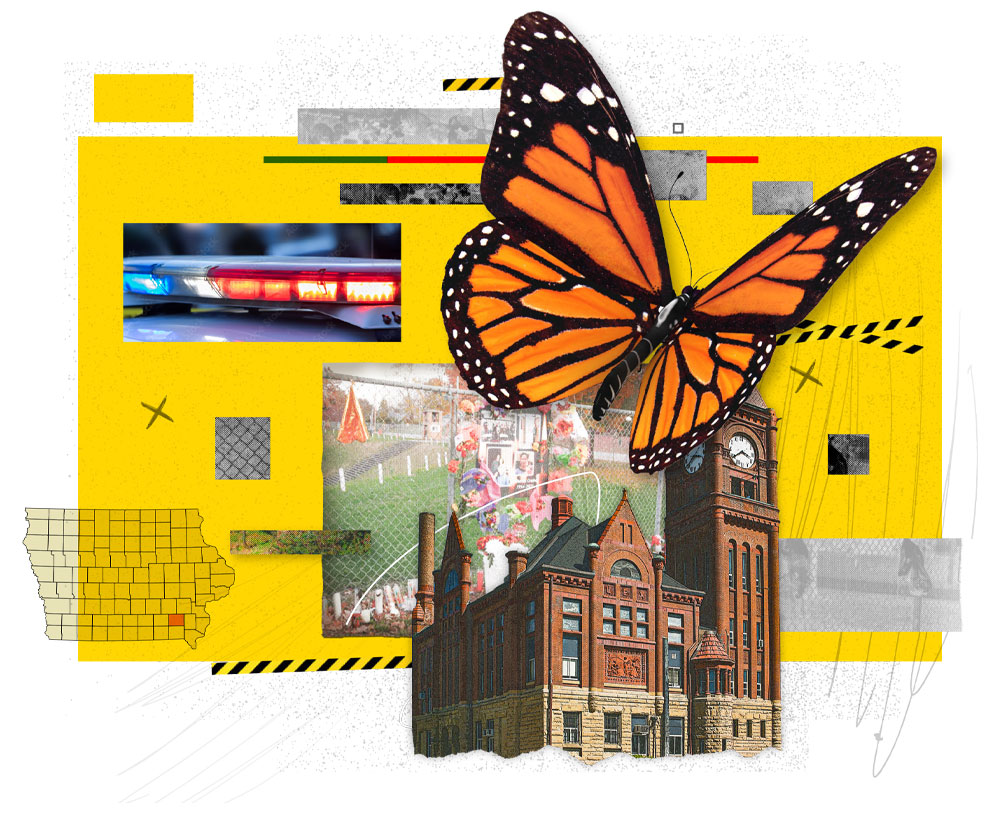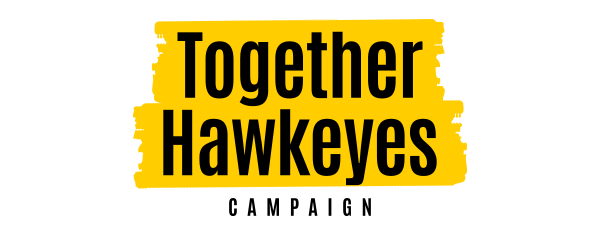How Iowa Helped One Community Heal from Tragedy
 IMAGE: NICK BEECHER
In the face of tragedy, the Fairfield Community School District turned to the University of Iowa-based Scanlan Center for School Mental Health for resources to support students and teachers gripped by grief.
IMAGE: NICK BEECHER
In the face of tragedy, the Fairfield Community School District turned to the University of Iowa-based Scanlan Center for School Mental Health for resources to support students and teachers gripped by grief.
In fall 2021, the community of Fairfield, Iowa, was already grieving the loss of one of its students to suicide. Two weeks later, it was shaken again by the death of Nohema Graber, a Spanish teacher at Fairfield High School who was killed in a park by two students—one of whom was upset with the grade she’d given him.
The questions that arise from such events are fundamentally unanswerable. The central question is why. You say it shouldn’t happen here, but it shouldn’t happen anywhere. Trauma describes how we are affected by something we can neither fight nor run away from nor understand. The suffering that must be endured, absorbed, and somehow processed, is prolonged and complex.
Laurie Noll, the superintendent of schools for the Fairfield Community School District at the time, says she had no training in how to respond to something like this. Neither did her staff.
“I reached out to as many resources as I could find,” recalls Noll. “The Scanlan Center was just forming. They came in to meet with students, one-on-one or in small groups, to make sure the mental health of our students was sustained and supported.”
The Scanlan Center for School Mental Health, a partnership between the UI College of Education and Iowa Department of Education, was launched in June 2021 with the mission to support mental health research, training, and clinical services in schools across the state. Created in response to the COVID-19 pandemic, the center educates teachers, counselors, and administrators in how to recognize and address mental health issues. “We don’t expect teachers to be mental health providers, but they’re the first-line responders,” says executive director Allison Bruhn.
Alissa Doobay (04BS, 10PhD), director of clinical services for the Scanlan Center, understands how hard it is to restore a community’s sense of certainty after a tragedy, particularly at a time when social media and the news amplify such events 24/7. “We don’t know what the future holds, so how do we continue living our lives, knowing everything is uncertain? Things happen, and it’s scary,” she says. “Humans have to learn to live with discomfort, building a tolerance for distress and anxiety and developing coping strategies. We can’t promise people who are afraid of flying that the plane won’t go down, but there’s a pretty good chance things will be OK, most of the time.”
A school tragedy like the one in Fairfield requires both a short-term and long-term response, first to stabilize the crisis and then to mediate the effects of trauma. The Scanlan Center creates individualized plans for schools that include psychological education for the staff, drop-in wellness clinics, and mindfulness exercises or wellness-based activities. With parental consent, the center also provides therapeutic services to students in-person or through telehealth. “Our role is to provide ongoing support,” says Doobay. “At Fairfield, we ended up sticking with them for quite a while.”
Trauma is not always easily diagnosed, so the Scanlan Center helps students and staff look for the signs. “Self-awareness means knowing how you’ve been affected by an event,” says Tevin Middleton, who is currently completing his graduate work with the Scanlan Center. “How has the student embodied the experience? Are they walking frantically? Are they talking faster? Are they breathing hard? Do they slam the door and not realize it? Being able to identify your distress, what you feel in your body, allows you to communicate your emotions and transform your awareness.”
We want our kids to feel safe. We want them to remain innocent, for as long as possible, though in today’s world, that’s not as long as it used to be. When a tragedy occurs at a school, pretending everything is the same afterwards doesn’t work. The irony is, we want to remember, and we want to forget.
“That’s the push and pull,” says Doobay. “We want to give people time to acknowledge their grief and to process it, but I’ve seen situations where it goes the other way, where students feel like their entire high school experience was about the one thing that overshadows everything else. We have to find a happy medium.”
Noll says the Scanlan Center’s work in Fairfield has helped the community cope with trauma and prioritize its mental health. “Even [now], we have people doing teletherapy counseling through Scanlan,” she says. “People are noticing that it’s a support. I don’t see a stigma, like it used to be.”
Learn more about how the Scanlan Center for School Mental Health is supporting Iowa’s schools. You can also join the Scanlan Center’s mission by making a gift.

